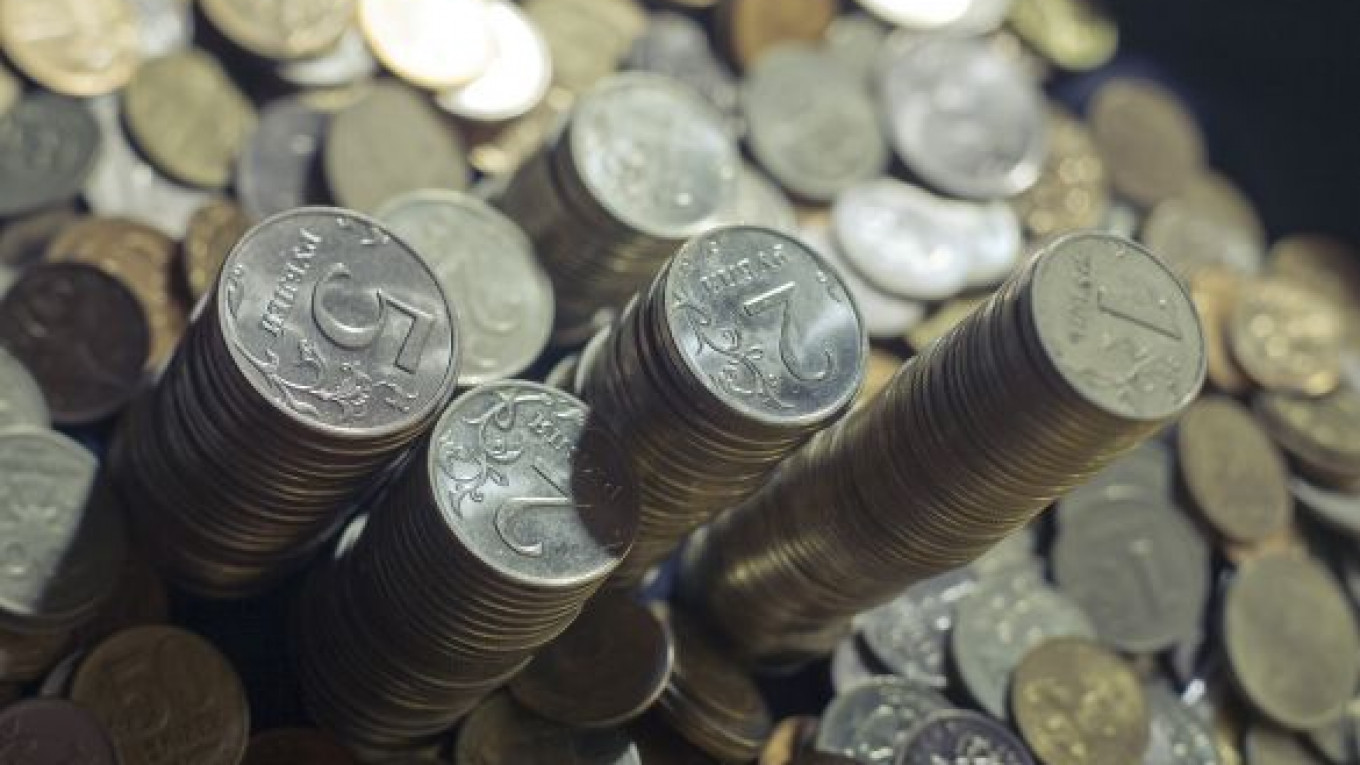Prime Minister Dmitry Medvedev is calling attention to the introduction of a common currency for the Eurasian Union of former Soviet countries as a hedge against growing volatility in global financial markets.
Although he noted that creating such a currency is a long-term project — the Eurasian Union is expected to start functioning in 2015 — he said it's time "to think ahead."
"It's not a matter of concern for today, but we should think about it," Medvedev told a business forum in St. Petersburg on Friday, adding that he expects the business communities of member states to participate in the discussions.
The idea of the Eurasian Union was first voiced by then-Prime Minister Vladimir Putin in October 2011.
In an article in Izvestia, Putin said the Eurasian Union would further integrate existing customs-union members Russia, Belarus and Kazakhstan. It would be expanded later to include more former Soviet republics, perhaps Kyrgyzstan and Tajikistan.
Introducing a single currency for the member states of the Eurasian Union would ease trade and financial relations between the countries, reduce currency exchange expenses and simplify individuals' transfer across the borders, but it's a very long-term prospect, said Alexei Portansky, a? professor in the global economy and? policy department at? the Higher School of? Economics.
"There is no sufficient economic background within the customs union to introduce the common currency over the next few years," he said.
Discussion of a single currency in Europe began in the mid-1970s, when the domestic market accounted for at least 65 percent of the region's trade, and it took more than 20 years for the euro to be introduced as the EU's single currency in 1999, Portansky said.
Russia has yet to reach those trade volumes with its customs-union peers. They accounted for less than 8 percent of its external trade in 2010, he said, citing figures from the Economic Development Ministry.
Portansky said wooing Ukraine into the customs union would bring the introduction of the common currency closer because it would significantly boost Russia's mutual trade with other bloc members.
Creating a single currency will mark the final stage of forming the Eurasian Union and help strengthen the bloc, Stanislav Bogdankevich, former chairman of the National Bank of Belarus, told RIA-Novosti on Friday.
He added that determining which country's currency becomes the basis for the bloc's monetary system will depend on the union's ultimate structure.
"If it's a broader Eurasian Union of five to six states, it's better to create a new currency," he said.
But regardless of the currency adopted, member states should learn a lesson from the eurozone, now mired in a severe debt crisis.
The first thing to do when creating a single-currency union is establish a common central authority overseeing the fiscal policy in each of the bloc's countries, something eurozone countries don't have, said Alexei Devyatov, chief economist at UralSib Capital.
"If we first create the common-currency union, leaving the tight political integration for later, as it happened in Europe, we run the risk of repeating the destiny of the European Union when small countries expand their budget deficits," he said.
But Leonid Slutsky, head of the State Duma's CIS committee, said the Eurasian Union wouldn't be "a copy of the European Union, but it could borrow the main positive factors."
Having supported Medvedev's proposal to start discussions on the common currency, Slutsky said it could be introduced shortly after 2015, when the union's structure becomes clear.
"Only then will it be clear whether it makes sense to issue a new supranational currency like the euro or probably use the Russian ruble for the common Eurasian economic space," he said.
A Message from The Moscow Times:
Dear readers,
We are facing unprecedented challenges. Russia's Prosecutor General's Office has designated The Moscow Times as an "undesirable" organization, criminalizing our work and putting our staff at risk of prosecution. This follows our earlier unjust labeling as a "foreign agent."
These actions are direct attempts to silence independent journalism in Russia. The authorities claim our work "discredits the decisions of the Russian leadership." We see things differently: we strive to provide accurate, unbiased reporting on Russia.
We, the journalists of The Moscow Times, refuse to be silenced. But to continue our work, we need your help.
Your support, no matter how small, makes a world of difference. If you can, please support us monthly starting from just $2. It's quick to set up, and every contribution makes a significant impact.
By supporting The Moscow Times, you're defending open, independent journalism in the face of repression. Thank you for standing with us.
Remind me later.


